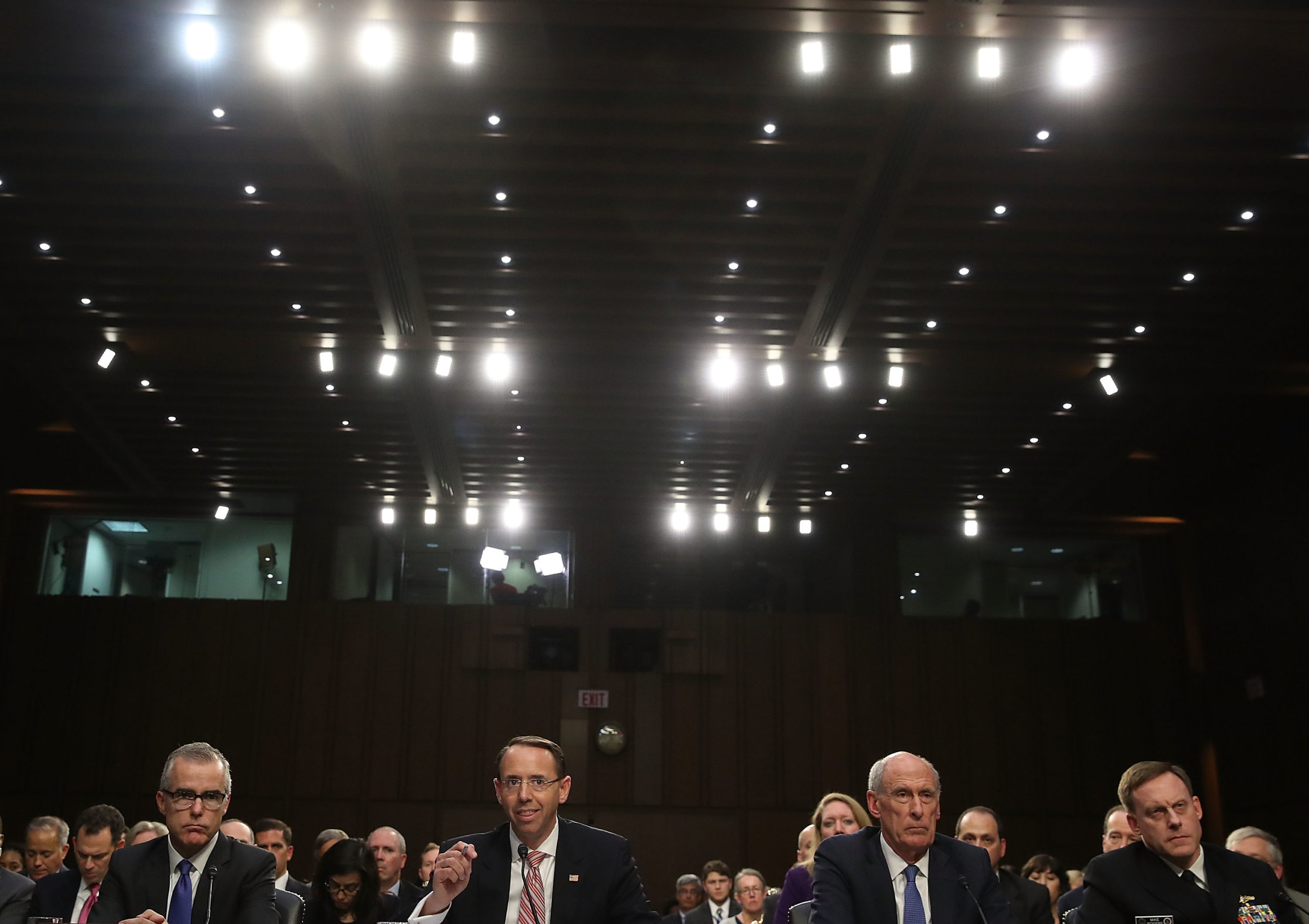The Privacy and Civil Liberties Oversight Board released a report Thursday recommending Congress continue to allow federal intelligence agencies to access U.S. citizens’ private messages without a warrant if they’re communicating with “targeted” foreigners.
The board voted 3-2 along partisan lines to approve the recommendations, according to the New York Times. Through Section 702 of the Foreign Intelligence Surveillance Act, intelligence agencies have access to a searchable database of messages between foreign nationals “that are expected to receive, communicate, or possess foreign intelligence information” and American citizens, according to the report.
“Although the government may use Section 702 only to target non-U.S. persons, communications of U.S. persons or information concerning them may be ‘incidentally’ collected when a lawfully targeted non-U.S. person communicates with or talks about a U.S. person,” the report reads.
The intelligence community does not disclose how many Americans it collects information on through this method, according to the report. (RELATED: Biden Taps Former NSA Director Who Promoted Diversity Quotas For National Cyber Czar)
The report recommended that agencies be required to receive approval from a Foreign Intelligence Surveillance Court (FISC) prior to searching the message database for communications involving Americans, approval Politico reports falls short of what would be required to obtain a traditional warrant.
The Republican board members issued a separate statement to note that “they voted against this Report, and that “this Report therefore should not be attributed to them,” according to the document. They claim that the third recommendation, which would require the authorization, would place “heavy bureaucratic burdens on agency personnel and the FISC without evidence there would be much, if any, privacy and civil liberties improvement.”
They also argued that the authority to approve access to American messages would be best handled by Congress, according to the document.
“Congress should have the opportunity to review sensitive queries, including those involving public officials, political candidates, members of the news media, and others involved in protected First Amendment activities,” the document reads. “The best branch to safeguard against political misuse is a political branch accountable to the people—not a court with limited resources, appropriately focused only on legal issues, and operating largely out of the public eye.”

WASHINGTON, DC – JUNE 07: (L-R) Acting FBI Director Andrew McCabe, Deputy Attorney General Rod Rosenstein, Director of National Intelligence Dan Coats and National Security Agency Director Adm. Michael Rogers appear before the Senate Intelligence Committee in the Hart Senate Office Building on Capitol Hill June 7, 2017 in Washington, DC. (Photo by Mark Wilson/Getty Images)
The Republican members partially justified their dissent from the majority’s report by citing its failure to address their perception that “actions of certain members of the FBI have shaken the public’s trust in our Intelligence Community,” according to the document.
“The culture that produced the improper queries of donors to a political campaign, people arrested during civil unrest following the killing of George Floyd, individuals investigated for their presence at the January 6, 2021 breach of the Capitol, and others, requires immediate attention and external oversight,” the members wrote.
There has been a 276% increase in the number of foreign individuals whose messages are liable to search since 2013, according to the report.
Several civil rights organizations signed a statement in June opposing the warrantless Section 702 searches, according to a coalition statement published by the Brennan Center. Some Republican lawmakers, like Reps. Jim Jordan of Ohio and Matt Gaetz of Florida, also oppose warrantless searches, according to the NYT.
All content created by the Daily Caller News Foundation, an independent and nonpartisan newswire service, is available without charge to any legitimate news publisher that can provide a large audience. All republished articles must include our logo, our reporter’s byline and their DCNF affiliation. For any questions about our guidelines or partnering with us, please contact licensing@dailycallernewsfoundation.org.


